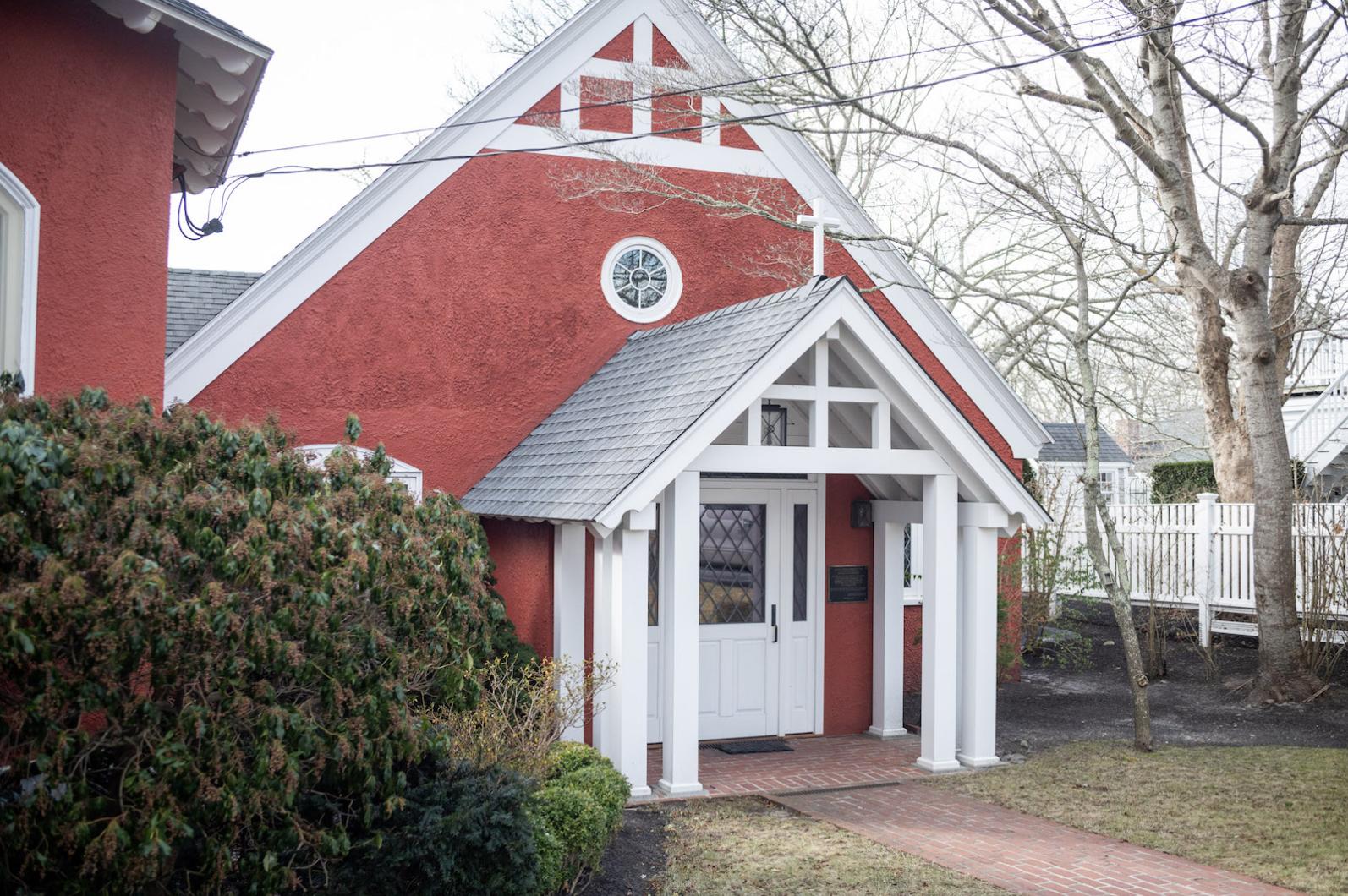Nota do editor: A tradução para o Português está disponível no canto inferior esquerdo da tela.
Editor’s note: Portuguese translation is available. Click the translation drop-down menu at the bottom left of your screen.
Educators, hospital workers and social services volunteers were among the more than 30 Islanders who turned out at St. Andrew’s Episcopal Church in Edgartown Monday evening for a presentation on constitutional rights by immigration attorney Rachel Self.
Many in the crowd were advocates from various Island organizations, looking to learn how they can help local immigrants in light of the Trump administration’s much-publicized immigration crackdown. Two weeks ago, false rumors of U.S. Immigration and Customs Enforcement (ICE) officials arriving on the Vineyard put local immigrants on high alert, leading to widespread absences at schools, construction sites and businesses on the Island.
A show of hands Monday indicated nearly every person in the church was a United States citizen, which Ms. Self noted was unusual for her subject matter.
“I generally give these Know Your Rights presentations to people who are immigrants,” she said.
Regardless of status, Ms. Self said, the same constitutional protections apply for all.
“No matter who is president in the United States, everyone living in the U.S. has certain basic rights under the constitution. Undocumented immigrants have these rights too, [and] it’s important that we all protect and assert our basic rights,” she told the crowd.
“Knowledge is power. Educate yourself,” said Ms. Self, who lives on Chappaquiddick and has an office in Boston.
In recent years, she has offered her legal expertise on various matters. She played a key role in securing legal U.S. residency for dozens of Venezuelan migrants sent to the Island in September, 2022, by Florida governor Ron DeSantis.
The most powerful protection for everyone on U.S. soil is the constitutional right to remain silent when questioned by authorities, including Immigrations and Customs Enforcement, Ms. Self said.
“You are required to provide your name, but that is it and that is all,” she said
Ms. Self also advised against opening the door of a home when ICE agents knock — unless they have a warrant in hand that was signed by a judge and names a resident of the home.
“Ninety-nine point nine per cent of the warrants ICE agents show are not judicial warrants,” she said. “If they show up at your door you are not required to open it. Tell them to leave it there.”
Silence under questioning is also the best response for anyone who has been in the U.S. for less than two years, Ms. Self said. She provided samples of a card, printed in English on one side and Brazilian Portuguese on the other, that individuals can present to ICE while declining to speak or allow entry to their home.
Migrant families with children in Martha’s Vineyard public schools have been provided with a similar card and advice from local attorneys, said Leah Palmer, the school system’s director of English language learning.
“We’re really working with the parents right now,” Ms. Palmer said, during a discussion period following Ms. Self’s presentation.
Migrants who have been here longer than two years may be better off engaging with ICE as long as they have documents showing they are in the process of establishing legal residency, Ms. Self said.
“Make sure you have all of your documentation with you [in] a folder with a letter from your attorney,” she said.
Work authorizations, residency applications and children’s birth certificates — anything that establishes a lasting presence in the community — should all be part of the folder, she said.
Non-citizens should make sure their loved ones and representatives have their “A number,” a unique tracking number for aliens in the U.S., she said.
If the A number is not available for someone who has been taken into custody, that person could be deported before an attorney is able to intervene, she said.
Along with Ms. Palmer from the school system, Ms. Self’s audience at the church included Ryn Gluckman, nursing director of the Martha’s Vineyard Hospital emergency department; Tom and Joyce Dresser, volunteers with the Harbor Homes warming center and Lisa Belcastro, who manages the winter homeless shelter, and pastor Cathlin Baker of the First Congregational Church of West Tisbury, among other Islanders involved in public service.
Ms. Self urged all of the local agencies to establish and follow a clear policy for handling visits from federal agents and protecting their facilities’ records and information.
Without a judicial warrant, agents may not enter any areas marked as off-limits to the public, Ms. Self said, encouraging agencies and businesses to post signs for all non-public parts of their operations. Staff members can decline to answer questions about individual people without authorization, but may not help anyone to hide or escape, Ms. Self said.
While cautioning the St. Andrew’s audience that her remarks were not official legal advice, Ms. Self said she and other attorneys are staying on top of rapidly-changing developments in immigration law and enforcement.
“Tomorrow everything could be different, based on the administration’s actions,” she said.







Comments
Comment policy »